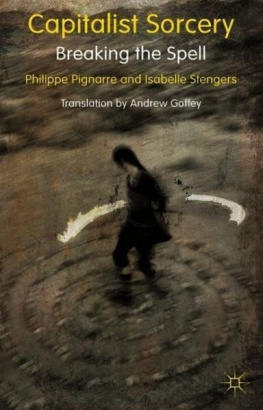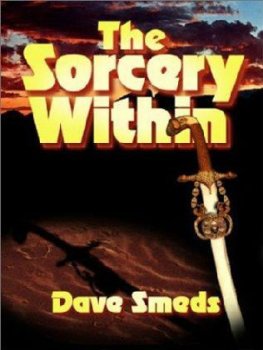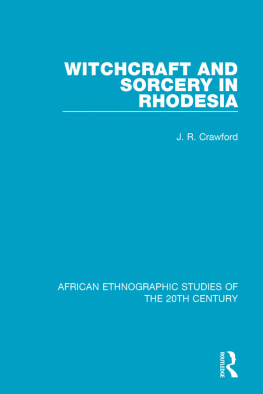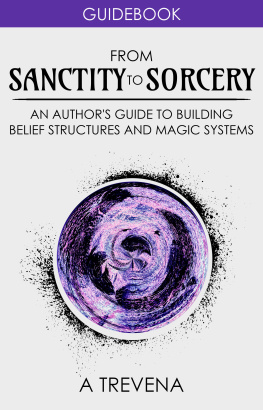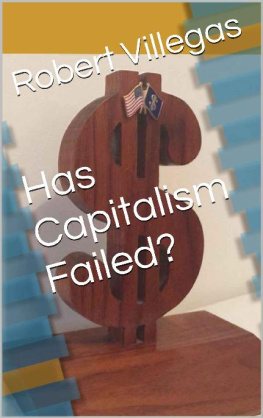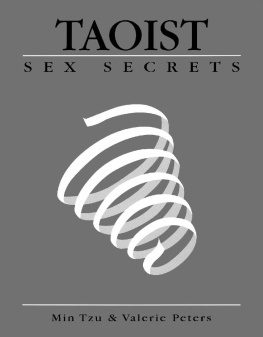Capitalist Sorcery
Breaking the Spell
Philippe Pignarre
Paris, France
and
Isabelle Stengers
Universit Libre de Bruxelles, Belgium
Translated and edited by Andrew Goffey
Acknowledgements
The authors would like to thank those people who read and criticised the manuscript, especially Didier Gille, Didier Demorcy, Alexandra Minvielle, Daniel de Beer, but also Groupe Culture et Paix, which shot down a first attempt in flames and thus forced us to reflect better on the position that We were intervening from. Thanks also to everyone who participated in a day of critical reading as part of the activities of GECo (Groupe dtudes constructivistes) at the Universit de Bruxelles and more specifically to Didier Debaise, Jonathan Philippe, Nathalie Trussart and Benedikte Zitouni, who introduced the different parts of the book.
During the Writing of this book, we met militants from Attac, the CGT, the CFDT, from Sud, from Act Up and from the organisers of the intermittents and the prcaires, all of whom encouraged us in our effort. Thanks to them.
Introduction: Un the Witchs Broomstick
Andrew Gojfey
Capitalist Sorcery: Breaking the Spell was written by Philippe Pignarre and Isabelle Stengers in 2004, five years after the enormous protests that shook Seattle at the end of November 1999. Since the events of 1999 there have been a series of more or less visible, more or less violently repressed anti-capitalist protests across the world. And since Pignarre and Stengers wrote their book, the collapse of the global financial markets and the increasingly high media profile of climate change have given added piquancy to any reflections about the problem of inheriting from Seattle.
Pignarre, a writer, publisher and activist with nearly two decades experience working in the pharmaceutical industry, and Stengers, a philosopher and historian of science, writer and activist most well-known, perhaps, for her collaborative work with Ilya Prigogine, might not strike the average political activist as the most likely pair to be Writing about the problem of 'inheriting from Seattle. However, on closer inspection, the bulk of Pignarre's writing, on psychotherapy and the pharmaceutical industry, the publishing house he set up (Les Empcheurs de penser en rond), and the majority of Stengerss work display a concern (announced explicitly at the end of her The Invention of Modern Science) for exploring different aspects of the politics of knowledge(s), for generating new ways of bringing 'into politics a range of issues that would not normally be considered in these terms. In fact, one of the first publications for Pignarres house was a book by Stengers and Olivier Ralet about drugs and drugs policy in Holland that not only challenged prevailing 'psy' dogmas but also became a tool for users wanting to meddle with what didnt concern them. Even the recent essay by Stengers on Alfred North Whitehead (a figure whose philosophy most had probably consigned to the dustbin of intellectual history) displays a concern for the possible' that challenges the modern sett1ement', with its putting out of play of the domain of nature as an object of political concern.
But if one can thus discern a constant concern with political issues in their work, the reader might nonetheless experience a little perplexity at the authors admission that not only were they not present in Seattle, but that the book they have written doesnt propose a historical account or any other kind of explanation of the event. In fact, it doesnt even try to offer a theory of anti-capitalist protest, which is what one might generally expect (even demand) from authors of scholarly historical and philosophical texts - especially if they write in French.
How Stengers and Pignarre came to be writing about the cry from Seattle, what they want to say about it and why they happen to be doing so together in terms of the notion of 'capitalist sorcery' are questions that are clearly answered in the course of the book, so it would be inappropriate to anticipate that discussion here. However, for the reader who is not familiar with their work - as well as the reader who is only familiar with their work in less obviously political areas - the claim that they make for the existence of a properly capitalist sorcery is one that can be usefully introduced and complemented by a discussion that draws on some of the other issues that this claim touches on. The specific problem of capitalist sorcery relates to issues that they tackle in their other writings. This introductory chapter thus seeks to gesture towards some of the crucial debates and discussions out of which the ideas that Capitalist Sorcery develops emerge.
How do you continue an event?
Capitalist Sorcery is neither an explanatory nor a theoretical text. What it tries to do is to think with the practices of some of the anti-capitalist protesters whose actions at Seattle gave a broader resonance to the cry another world is possible. Events, whether they are assented to or disparaged from a distance (to say nothing of what happens to the immediate participants), raise the question of the difference that they make. This entails a decision - not necessarily a heroic decision, or one posed in the stark terms of an ultimatum (as when George W. Bush says 'youre either with us, or against us) - although there may be times when an event demands this kind of response. Rather, an event poses the question of how it might be linked to and continued: is it in the mode of a sneering denunciation, as is seen so frequently in the media after demonstrations against globalisation? ls it in the mode of an activist question of how best to put to work energies that have been mobilised during a demonstration? Less direct ways of situating oneself in relation to it, generating other kinds of connection, are equally possible. One can imagine Seattle generating a psycho-social inquest, for example (why do all these people want to get out on the street and complain about the fruits of global capitalism?), or - more likely - high level boardroom re-visiting of investment strategies. Most frequently, though, one just expects a resigned shrugging of the shoulders: so what!
The authors do not have a general solution to this problem, partly because every event, when treated as such, poses a problem. It is the way that it does this, creating the potential for hesitation, that makes it an event. The approach that Pignarre and Stengers adopt here - affirming that, as Europeans with historical connections to a different kind of militancy, there is something to be learned with regard to Seattledemands a curious mixture of very concrete, practical and highly speculative considerations. Their suggestion is that in the cry 'another world is possible, we need to take the opening which that possibility presents very seriously. For another world to be possible, really possible, the reality of that possibility effectively implies that we don't know quite how to respond, how to continue, how to inherit. Of course, we can always choose to ignore the event, but this comes at the risk of what might be called our damnation.
That last paragraph sounds quite metaphysical. It is, but in truth this question of how to respond, in the face of expert judgement, for example, that denies the existence of an event (theres nothing to be seen here, move on please), is an issue that in some ways has preoccupied Pignarre and Stengers throughout their work, albeit in very different ways. It could be argued, for example, that the kinds of dissipative processes explored by Stengerss collaborator, Nobel prize-winning physicist Ilya Prigogine, pose precisely this kind of problem for the Newtonian world of the reversible laws of physics, wherein the arrow of time, the directionality of time, is merely phenomenal illusion. For the physicist, this raises the question of the extent to which our understanding of such processes can merely be attributed to calculative approximations. Can they? Or do they require the physicist to rethink his or her relationship to the physics s/he has inherited?
Next page
